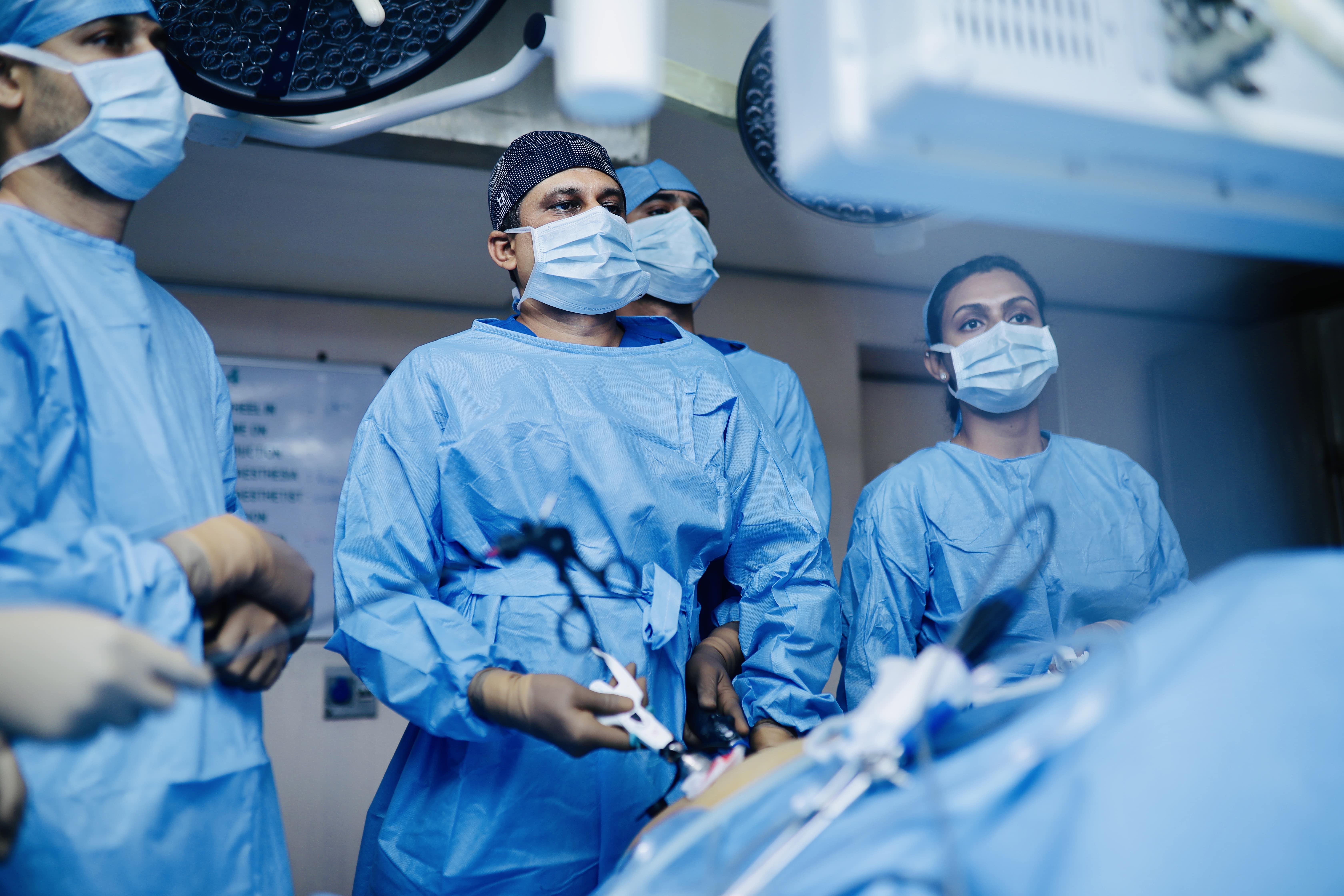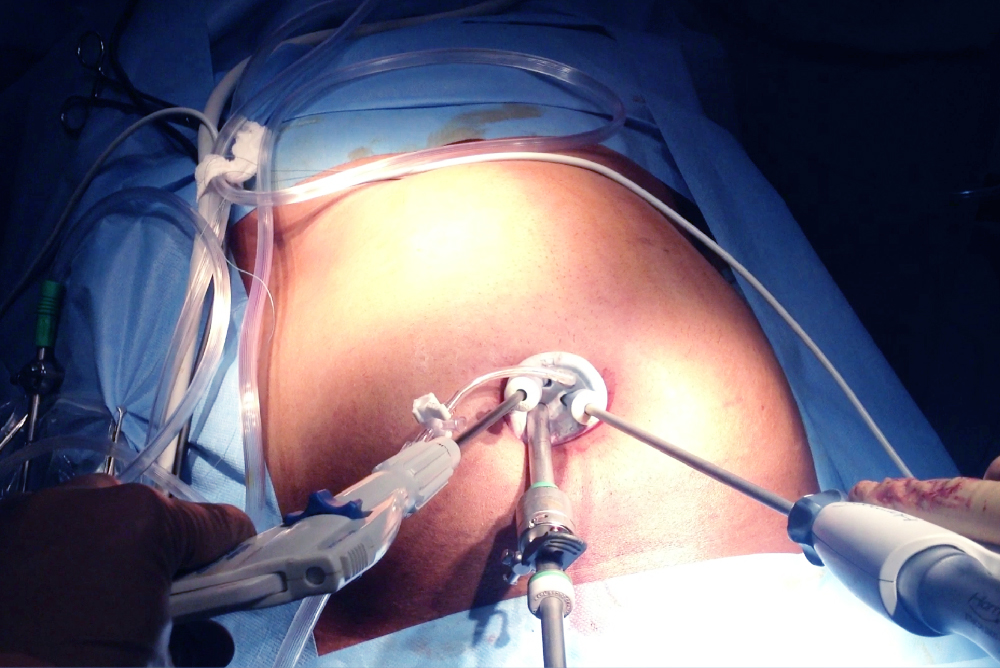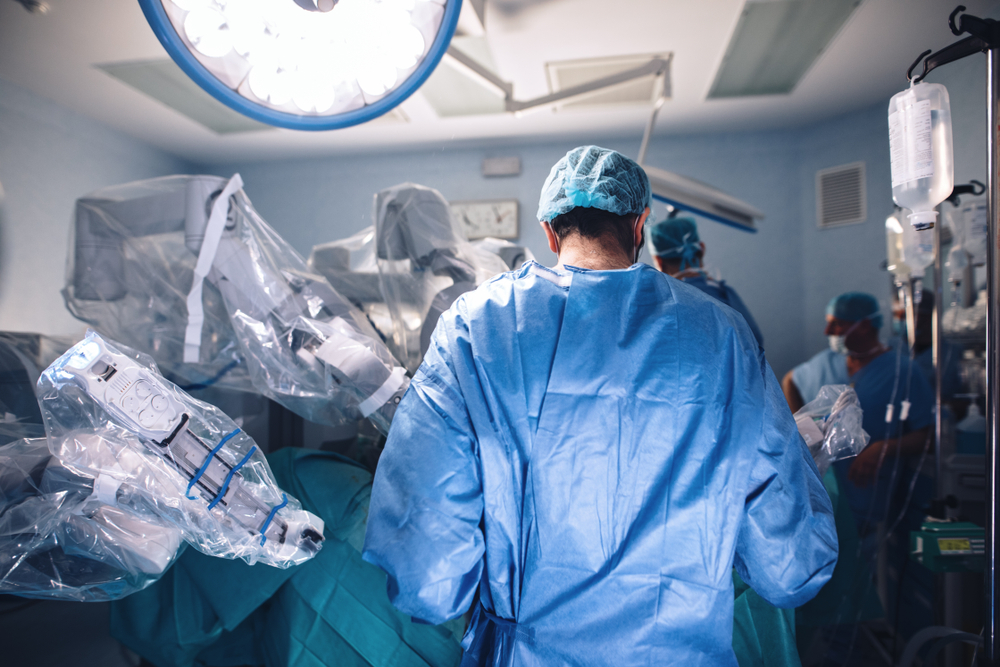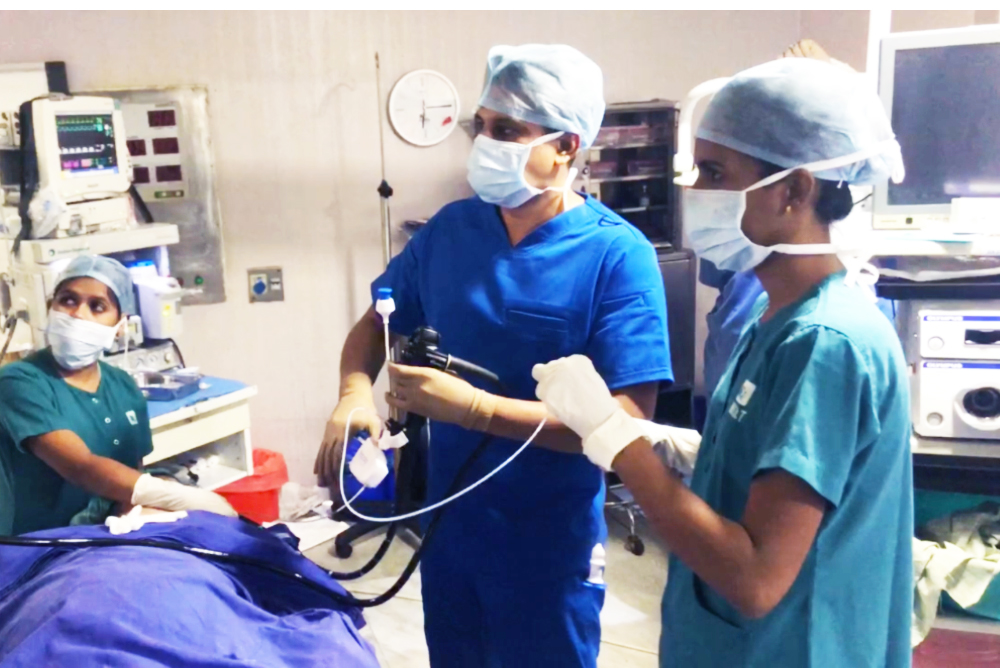

Most gastrointestinal surgeries including weight loss surgeries today are performed using minimally invasive technique (laparoscopic surgery). With advancement of technologies, newer minimal access techniques are evolving every now and then. There has been constant up gradation of the existing technology as well aimed ay making the procedures more safer than ever. The choice of technique is chosen based on factors like surgeon’s expertise, instrumentation, complexity of procedure, previous surgery on the abdomen, body composition, comorbidities, anaesthetic factors, and cost.
Laparoscopic surgery or Keyhole surgery is a modern surgical technique in which, operation in the abdomen is performed through small incisions (usually 0.5 – 1.3 cm) as opposed to the larger incisions in open surgery. The surgeon operates through long instruments passed through these holes visualising the internal space through a telescopic camera. There are numerous advantages to the patient which include, fewer errors due to magnification, reduced pain due to lesser insult, minimal or no bleeding and shorter recovery time. This technique is performed through 3 – 5 small holes made in the abdomen to access the stomach and intestine for surgery. Very few expert centers around the world including BAROS use only three 3 holes to perform the same technique which benefits patients with even lesser pain and scar than the regular laparoscopy.


SILS is the next generation of Laparoscopy, wherein the access is only through a single port through the belly button instead of multiple ports. This utilizes new specialized port and roticulator instruments along with specialised cameras. This makes the procedure literally scarless as it will be buried inside the belly button. This procedure though consumes more time, gives early postoperative recovery with less pain than in conventional laparoscopy, especially in weight loss surgery; thus, making it a treatment of choice for patients. However, it requires expert skills and is not suitable for all patients. Results and outcome are better than laparoscopic in certain carefully chosen patients. Baros is the first unit in India to perform all types of SILS bariatric surgery on a regular basis and is one of the leading center for this technique in the world.
Robot-assisted surgery, the latest major evolution in minimal access surgery is considered for complex Bariatric procedures. The surgeon performs the movements associated with Laparoscopy on a robotic console through a joystick whilst the robotic arm on a remote cart carry out the actual surgery on the patient. Some major advantage of robotics are three-dimensional magnification, precision, less pain, decreased blood loss, and quicker healing time; thus, improving the outcome and safety. This technique is arguably the best suited for super obese (BMI > 50) and for revision bariatric surgery as it encourages a perfect hand sewn anastomosis over staplers. BAROS at Apollo hospitals is the first in India to start robotic bariatric surgery and is one of the leading center to offer robotic bariatric surgery on a regular basis


Endoscopic surgery is the latest kid on the block which provides a unique alternative and also is an effective therapy for weight loss without the risk of surgery. The procedures is performed through specialised endoscope, suturing and clipping devices. As weight loss is only moderate, it is indicated in a few select candidates or as a first stage procedure for a super obese. It is an effective alternative for revision procedures for weight regain after initial period of weight loss. One huge advantage of endoscopic bariatrics is in it’s use during complications after bariatric surgery where avoiding surgery decreases the chances of repeat complications significantly. BAROS institute of Bariatrics performed Asia’s first endoscopic bariatric surgery and is a premier institute to offer all kinds of endoscopic solutions including primary, revision and complication management after bariatric surgery.